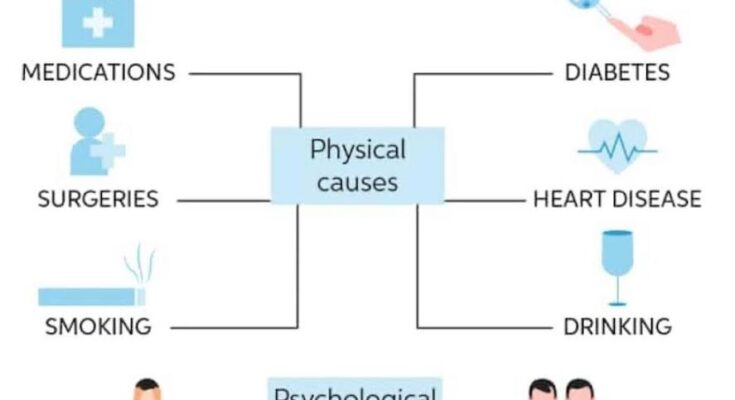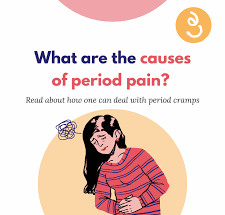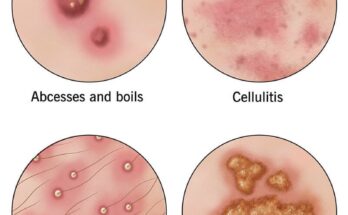Sexual dysfunction is a condition that prevents individuals from experiencing a full and satisfying sexual experience. It can affect people of all genders and sexual orientations, though certain types of dysfunction may be more prevalent or manifest differently in men and women. In men, sexual dysfunction primarily refers to difficulties related to arousal, sexual performance, and satisfaction. When left untreated, sexual dysfunction can lead to emotional distress, relationship issues, and a decreased quality of life.
Overview
What is Sexual Dysfunction?
Sexual dysfunction refers to problems during any phase of the sexual response cycle that prevent an individual or couple from experiencing satisfaction during sex. In men, this can affect arousal, desire, orgasm, or the ability to maintain an erection. The issues can range from temporary problems, often related to stress or lifestyle, to more chronic conditions that may require medical intervention.
Common Examples of Sexual Dysfunction in Men
Some of the most common types of sexual dysfunction in men include:
- Erectile Dysfunction (ED): The inability to achieve or maintain an erection firm enough for sexual intercourse.
- Premature Ejaculation (PE): Ejaculating too quickly during sexual activity, often before it is desired.
- Delayed Ejaculation: The inability to ejaculate during sexual activity, even though the man is aroused.
- Low Libido: A lack of sexual desire or interest in sexual activity.
- Anorgasmia: Difficulty reaching orgasm, even if there is sexual arousal.
How Common Is Sexual Dysfunction in Men?
Sexual dysfunction is incredibly common, especially as men age. Studies show that nearly 40% of men over the age of 40 experience some form of erectile dysfunction, and the prevalence increases with age. It is estimated that by the age of 70, as many as 70% of men will experience ED in some form. Other sexual dysfunction issues, like premature ejaculation and low libido, also affect a significant portion of the male population.
Symptoms and Causes of Sexual Dysfunction
What are the symptoms of sexual dysfunction?
- Difficulty achieving or maintaining an erection
- Reduced sexual desire
- Premature ejaculation
- Painful sex
- Inability to ejaculate
- Reduced satisfaction from sexual activities
Common causes of sexual dysfunction
Sexual dysfunction can be caused by a wide range of physical and psychological factors. Let’s break these down:
Physical Causes:
- Cardiovascular issues: Conditions like heart disease, high blood pressure, and diabetes can impair blood flow to the penis, leading to erectile dysfunction.
- Hormonal imbalances: Low testosterone levels can decrease libido and energy levels, contributing to sexual dysfunction.
- Neurological disorders: Conditions such as Parkinson’s disease, multiple sclerosis, and spinal cord injuries can disrupt nerve signals required for sexual arousal and performance.
- Chronic illnesses: Obesity, diabetes, and kidney disease can all contribute to sexual dysfunction.
- Medications: Certain medications, such as antidepressants, antihypertensives, and anti-anxiety drugs, can have side effects that impair sexual function.
- Substance abuse: Alcohol and drug use can significantly reduce sexual performance.
Psychological Causes:
- Stress and anxiety: Pressure to perform or fears of inadequacy can create a cycle of anxiety that exacerbates sexual dysfunction.
- Depression: Mental health disorders can cause or worsen sexual dysfunction by affecting mood, desire, and energy levels.
- Relationship issues: Poor communication, unresolved conflict, or emotional issues with a partner can interfere with sexual desire and performance.
- Negative body image: Low self-esteem or dissatisfaction with one’s body can negatively affect sexual function.
Comparison of Sexual Dysfunction in Men vs. Women
| Aspect | Men | Women |
|---|---|---|
| Types of Dysfunction | Erectile dysfunction, premature ejaculation, low libido, anorgasmia | Low libido, vaginal dryness, anorgasmia, inability to orgasm, painful intercourse |
| Physical Causes | Cardiovascular disease, diabetes, hormonal imbalances, medications | Hormonal imbalances, menopause, pelvic floor dysfunction, cardiovascular issues |
| Psychological Causes | Stress, anxiety, depression, relationship issues | Stress, anxiety, depression, relationship issues, trauma |
| Impact on Relationships | Can lead to frustration, decreased intimacy | Can lead to relationship strain, emotional disconnect |
| Prevalence with Age | Increases with age, particularly ED | Can increase during menopause and post-menopause |
Complications of Sexual Dysfunction
Untreated sexual dysfunction can lead to a variety of complications, including:
- Relationship problems: Decreased intimacy or emotional connection with a partner.
- Decreased self-esteem: Struggling with sexual performance can lead to feelings of inadequacy or shame.
- Emotional distress: Anxiety, depression, and frustration are common emotional responses.
- Impact on physical health: Chronic stress and anxiety associated with sexual dysfunction may exacerbate underlying health conditions, like cardiovascular disease.
Diagnosis & Tests
If you experience symptoms of sexual dysfunction, it’s essential to seek medical advice. Your doctor will typically start with a thorough medical history and physical examination. Additional tests may include:
- Blood tests: To check hormone levels, glucose levels, and overall health.
- Ultrasound: To assess blood flow to the penis and check for underlying vascular problems.
- Psychological evaluation: If a psychological cause is suspected, a mental health evaluation might be recommended.
- Erection test: To measure how well your body responds to sexual stimuli or other interventions.
Management & Treatment of Sexual Dysfunction
Medical Treatment
There are several options available for managing sexual dysfunction, depending on the cause:
- Medications: Drugs like Viagra (sildenafil), Cialis (tadalafil), and Levitra (vardenafil) are commonly prescribed to treat erectile dysfunction by increasing blood flow to the penis.
- Testosterone Replacement Therapy: For men with low testosterone levels, hormone therapy can help restore libido and energy levels.
- Psychotherapy and Counseling: If psychological factors like anxiety, stress, or depression are contributing to dysfunction, therapy can be beneficial.
- Vacuum Erection Devices: These mechanical devices help draw blood into the penis and maintain an erection.
- Penile Implants: For severe cases of erectile dysfunction, surgical implants can provide a long-term solution.
Stem Cell Therapy in the Treatment of Sexual Dysfunction
Stem cell therapy is an emerging and promising treatment option for sexual dysfunction, particularly erectile dysfunction (ED), that targets the underlying causes of the condition. The therapy leverages the regenerative capabilities of stem cells to repair or replace damaged tissues, improve blood flow, and restore sexual function. Some of the key benefits of stem cell therapy for sexual dysfunction include:
- Regeneration of Damaged Tissues: Stem cells have the ability to regenerate damaged tissues, including those in the penile area. This can help restore healthy blood vessels, nerves, and erectile tissues that may have been damaged due to aging, diabetes, or other conditions.
- Improved Blood Flow: Stem cell therapy can stimulate the formation of new blood vessels (angiogenesis) in the penis, improving circulation and enabling better erections.
- Non-Invasive Treatment: Unlike surgical interventions or long-term use of medications, stem cell therapy is minimally invasive, typically involving injections of the patient’s own stem cells into the penile tissue, with minimal downtime and fewer risks of complications.
- Long-Term Results: By addressing the root causes of erectile dysfunction, such as poor circulation or nerve damage, stem cell therapy may offer more lasting benefits compared to temporary solutions like erectile dysfunction medications, which only address symptoms.
- Personalized Approach: Since stem cells can be harvested from the patient’s own body, the risk of immune rejection is minimized, making it a more personalized and natural treatment.
Stem Cell Therapy Products for the Treatment of Sexual Dysfunction
Spidex21 for the Treatment of Sexual Dysfunction in Men

Spidex21 is an innovative stem cell-based therapy that aims to address male sexual dysfunction, particularly erectile dysfunction (ED), by leveraging the regenerative power of stem cells. This treatment is part of a growing field of regenerative medicine, offering potential benefits for men who may not have responded well to traditional treatments like medications (e.g., Viagra, Cialis) or mechanical devices (e.g., vacuum pumps).
How Spidex21 Works:
Spidex21 involves the use of autologous stem cells, typically sourced from the patient’s own body, which are then injected into the penile tissue. These stem cells have the ability to regenerate damaged blood vessels, improve nerve function, and enhance tissue health, addressing the root causes of erectile dysfunction. The goal of Spidex21 is to restore normal erectile function, improve blood flow, and rejuvenate nerve and tissue function within the penis, providing a more natural and long-lasting solution to sexual dysfunction.
Benefits of Spidex21:
- Regenerative Healing: By stimulating tissue regeneration and angiogenesis (formation of new blood vessels), Spidex21 enhances blood flow and nerve function, which can be particularly beneficial for men with ED caused by vascular or neurological damage.
- Minimal Invasiveness: Compared to invasive surgeries or long-term drug use, Spidex21 is a relatively non-invasive treatment that uses stem cells, which reduces the risk of complications.
- Potential for Long-Term Relief: Since Spidex21 targets the underlying causes of sexual dysfunction, it may offer a more lasting solution compared to symptomatic treatments like oral medications.
- Personalized Treatment: Stem cells from the patient’s own body are used, minimizing the risk of rejection and ensuring a tailored treatment approach.
Spidex20 for the Treatment of Sexual Dysfunction in Women

Spidex20 is a stem cell-based therapy developed specifically for the treatment of sexual dysfunction in women. Similar to Spidex21 for men, Spidex20 uses regenerative stem cells to address various forms of sexual dysfunction, including low libido, vaginal dryness, difficulty achieving orgasm, and other conditions that can impact sexual satisfaction and intimacy.
How Spidex20 Works:
Spidex20 involves the application of stem cell injections to areas of the female reproductive system, such as the vaginal tissue, pelvic floor muscles, and clitoral region. These stem cells aim to regenerate tissue, improve blood flow, and restore nerve function in the affected areas. By promoting tissue rejuvenation and stimulating natural lubrication, Spidex20 can help women regain sexual vitality and improve their overall sexual health.
Benefits of Spidex20:
- Improvement in Vaginal Health: Stem cells used in Spidex20 can help regenerate vaginal tissue, which may become thinner and less elastic due to aging or hormonal changes (e.g., menopause). This can result in improved lubrication, reduced pain during intercourse, and enhanced sexual pleasure.
- Enhanced Blood Flow: By improving circulation to the genital area, Spidex20 can help women experience more arousal and sensation during sexual activity.
- Restoration of Sensitivity: For women experiencing a loss of sensitivity or difficulty achieving orgasm, Spidex20 can help rejuvenate nerve tissue and restore a greater sense of pleasure.
- Non-Invasive and Personalized: As with Spidex21, Spidex20 is a minimally invasive treatment that uses the patient’s own stem cells, which reduces the risk of immune rejection and ensures a more personalized approach.
Applications:
Spidex20 can be particularly beneficial for women suffering from sexual dysfunction due to:
- Menopause: Hormonal changes during menopause can lead to vaginal dryness, decreased libido, and reduced sensation.
- Aging: As women age, vaginal tissue may become less elastic, and sexual function may decline due to hormonal shifts or pelvic floor issues.
- Postpartum: After childbirth, women may experience pelvic floor dysfunction or a decrease in sexual pleasure, which Spidex20 may help address.
- Chronic Health Conditions: Conditions like diabetes or autoimmune disorders can affect sexual function, and Spidex20 offers a potential solution.
Dangers of Using Harmful Drugs for Treatment
Many men, in an attempt to self-medicate, may turn to unregulated drugs or supplements marketed for sexual enhancement. Some of these products contain harmful ingredients or even dangerous chemicals that can have severe side effects, including heart problems, liver damage, or hormonal imbalances. It’s crucial to consult a healthcare professional before trying any over-the-counter or non-prescription treatments.
Conclusion
Sexual dysfunction in men is a complex issue with both physical and psychological roots. While it is common, it is also treatable, with a variety of medical and therapeutic interventions available. Men experiencing sexual dysfunction should consult with a healthcare provider to explore the most suitable treatment options. Emerging therapies, like stem cell treatments, offer hope for those seeking alternative solutions, but more research is needed to confirm their long-term effectiveness.
If you’re struggling with sexual dysfunction, remember that you’re not alone, and effective help is available.



